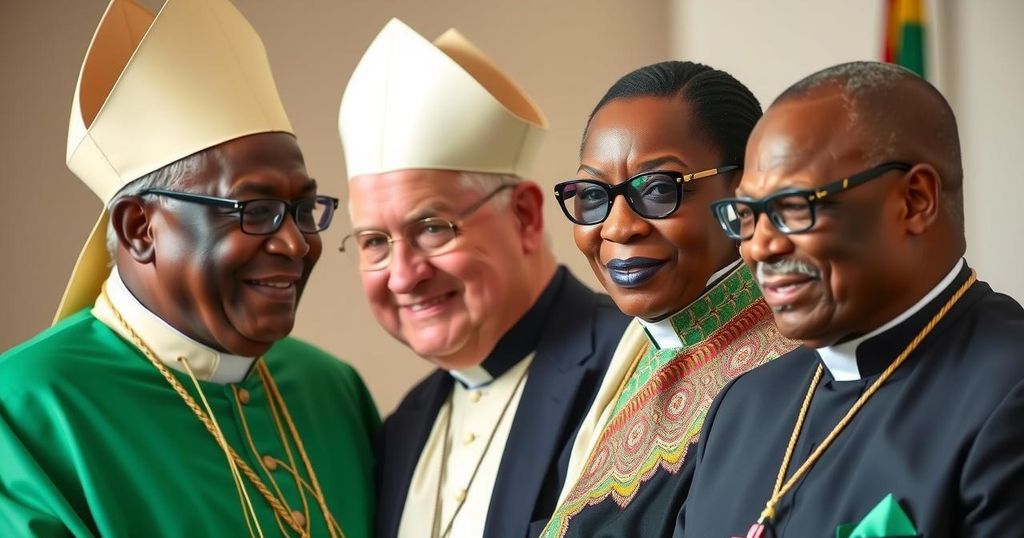Catholic Bishops from Malawi, Zambia, and Zimbabwe are urging active participation from the faithful to foster solidarity and establish the Association of Catholic Bishops’ Conferences of Malawi, Zambia, and Zimbabwe (ACBC-MAZAZI). This initiative, stemming from a series of meetings since 2020, aims to enhance collaboration for the effective proclamation of the Gospel. Bishops emphasize shared history and common challenges, inviting community support in realizing this vision over time.
In a collective call for solidarity, Catholic Bishops from Malawi, Zambia, and Zimbabwe have encouraged the faithful in their regions to participate actively in initiatives aimed at fostering unity and collaboration. This appeal comes as they work towards establishing an independent regional forum, known as the Association of Catholic Bishops’ Conferences of Malawi, Zambia, and Zimbabwe (ACBC-MAZAZI). In their joint statement released on December 17, the bishops reflected on their journey that began in February 2020, emphasizing the importance of their shared history and common challenges. “Over the past five years, the three Episcopal Conferences of Catholic Bishops of Malawi, Zambia and Zimbabwe have been meeting to discern ways through which they can collaborate for the effective proclamation of the Gospel in the region,” they remarked.
The bishops highlighted the gradual process of formalizing this regional entity, acknowledging the need for collective efforts. They invite all members within the Episcopal Conferences to engage in actions that promote pastoral initiatives and collaboration. The bishops have previously stated, “The formalization of the Sub-Region is something that will take time. However, efforts are already being made to identify areas of collaboration.”
The history of this initiative stems from meetings focused on enhancing collaboration and shared objectives among the three Conferences, building on their July 2023 assembly discussions regarding pastoral effectiveness. Their vision includes establishing Lusaka, the capital of Zambia, as the headquarters for ACBC-MAZAZI and integrating additional members as associates when necessary.
The bishops’ December statement reassured the faithful of ongoing communication and updates regarding the initiative, emphasizing the need for spiritual solidarity. They expressed hope that this structure would serve evangelization purposes while underscoring that its development would require support from the community. They stated, “Having introduced to you the idea of the Sub-Region… we hope you will identify yourselves with it and actively participate in all its activities that will be relayed to you through your national Conferences.”
The initiative to establish the Association of Catholic Bishops’ Conferences of Malawi, Zambia, and Zimbabwe (ACBC-MAZAZI) represents a significant move towards regional unity and collaboration among the Catholic Bishops in Southern Africa. Stemming from a series of consultative meetings initiated in February 2020, this endeavor seeks to address common challenges faced by the Church across these nations. The bishops aim to enhance the effective proclamation of the Gospel by working together to promote solidarity and pastoral initiatives, emphasizing a collective responsibility to their congregations.
The call made by Catholic Bishops in Malawi, Zambia, and Zimbabwe reflects a crucial step towards enhancing regional solidarity and collaboration within the Catholic Church. Through the establishment of ACBC-MAZAZI, the bishops aim to create a platform for shared pastoral initiatives, fostering a sense of unity and common purpose among the faithful. The bishops’ invitation for active participation emphasizes the significance of community support in realizing this transformative vision for the sub-region.
Original Source: www.aciafrica.org






